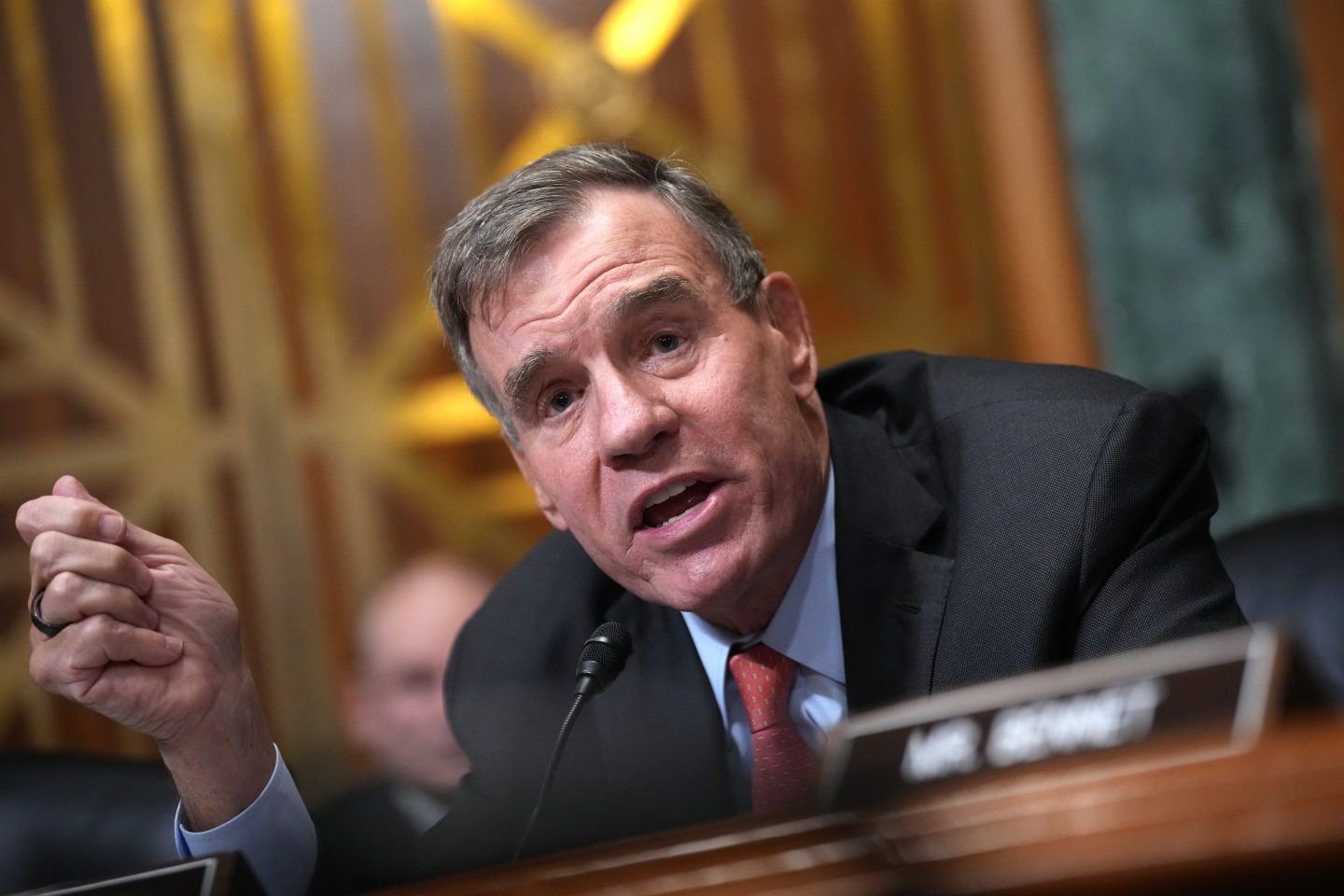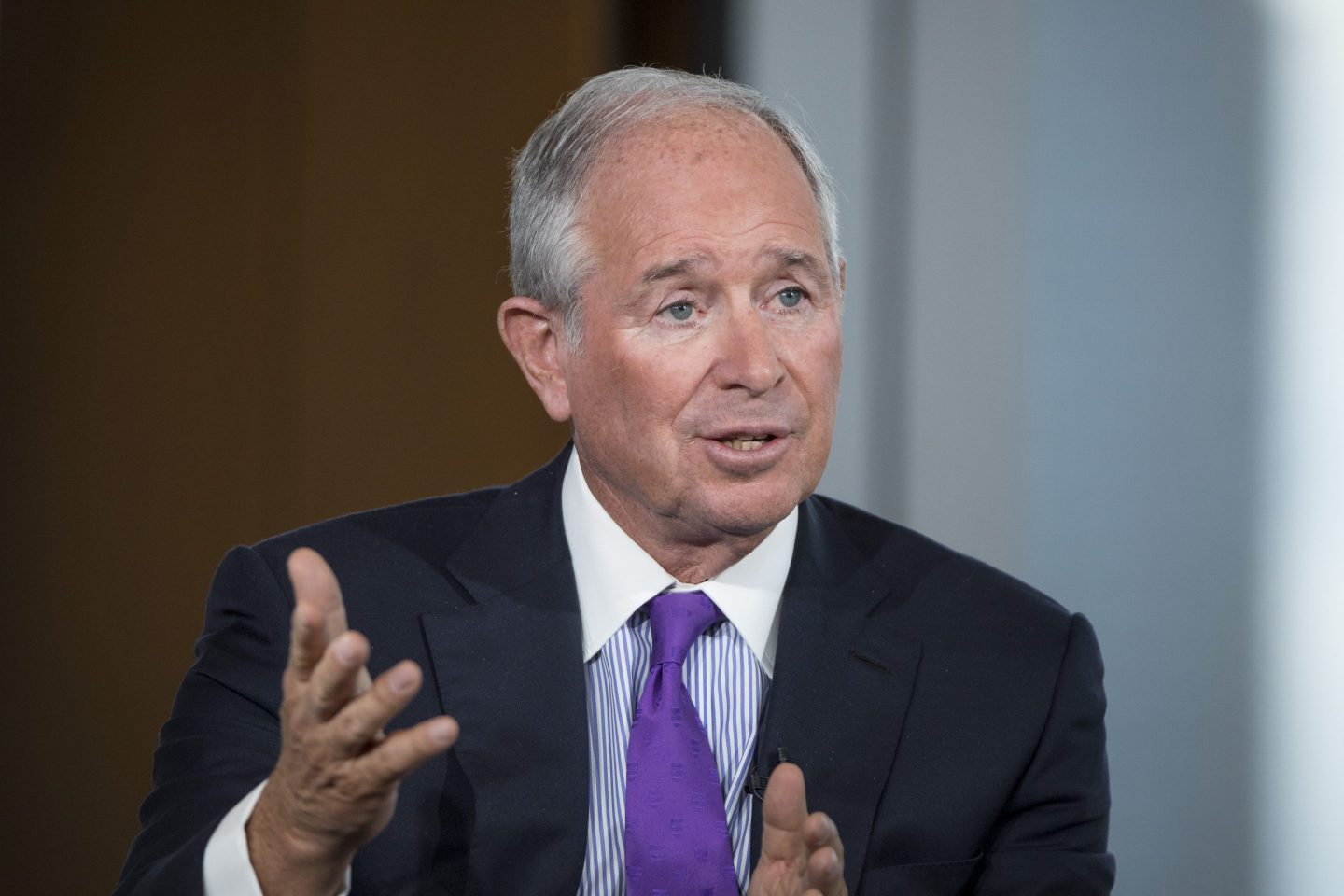Today’s young people have endured crisis after crisis—social media upheaval, a pandemic, and political turmoil. And for many eager to finally start their careers, they’re facing yet another uphill battle: entering one of the toughest job markets in a decade.
Job postings are down, and unemployment among recent graduates has climbed to 9.3%, according to the Federal Reserve—its highest level outside of the pandemic since 2014.
But one lawmaker says this may only be the beginning.
Unemployment for recent college graduates could surge to as high as 25% in the next two to three years, warned U.S. Senator Mark Warner (D-Va.) in an interview with Bloomberg, and it could cause a “level of social disruption that’s unprecedented.”
“If we eliminate that front end of the pipeline, how are people ever going to get to that mid-career spot?” Warner added to CNBC.
For Warner’s part, he’s said he’s working on a job retraining program—and wants AI companies, which he argues are contributing to the disruption, to cover most of the costs. He also partnered across the aisle with Josh Hawley (R-Mo.) to introduce a bill requiring major companies and federal agencies to report any AI-related job effects, including layoffs and displacement, to the Department of Labor—which would publish results to Congress and the public.
“Artificial intelligence is already replacing American workers, and experts project AI could drive unemployment up to 10-20% in the next five years,” said Hawley in a press release. “The American people need to have an accurate understanding of how AI is affecting our workforce, so we can ensure that AI works for the people, not the other way around.”
While Warner said he does believe AI will create new jobs in the long term, he warned that the transition period could create significant economic pain if Congress fails to act.
Fortune reached out to Warner’s office for further comment.
AI could eliminate 100 million jobs, one senator predicts
Beyond entry-level work, lawmakers have also sounded the alarm that AI could lead to massive job disruption across all forms of work.
A report released last month from Senator Bernie Sanders (D-Vt.) predicted that tech automation could result in the elimination of nearly 100 million jobs in the U.S., with roles in fast food, customer service, and labor facing the most disruption. High-skilled jobs like accounting, software development, and nursing could also see significant cuts.
“It’s not just economics,” Sanders wrote in an op-ed for Fox News. “Work, whether being a janitor or a brain surgeon, is an integral part of being human. The vast majority of people want to be productive members of society and contribute to their communities. What happens when that vital aspect of human existence is removed from our lives?”
It’s still unclear how Capitol Hill will ultimately address AI’s economic impact, but Warner cast doubt that lawmakers will agree on any meaningful legislation when it comes to AI safety, despite multiple congressional hearings on the topic.
Complicating matters further, the Trump administration is reportedly considering an executive order that would preemptively block states from regulating AI.
Warner warned that doing so would all but guarantee federal inaction: “If we take away the pressure from the states, Congress will never act,” he told CNBC. “Let’s look at the fact we never did anything on social media. If we make that same response on AI and don’t put guardrails, I think we will come to rue that day.”













